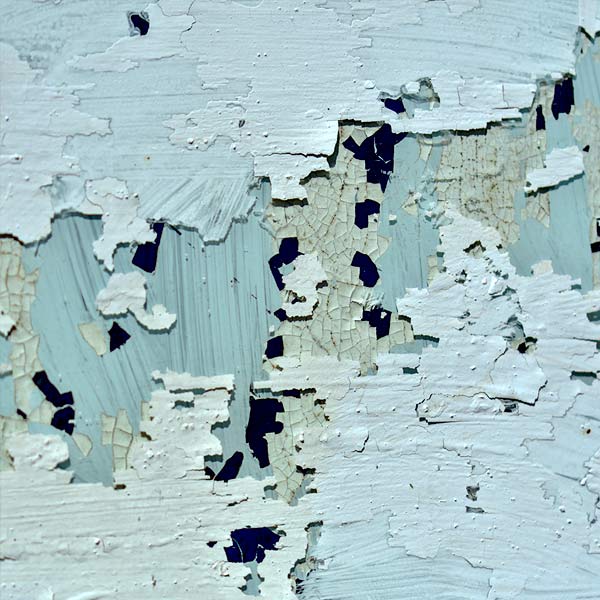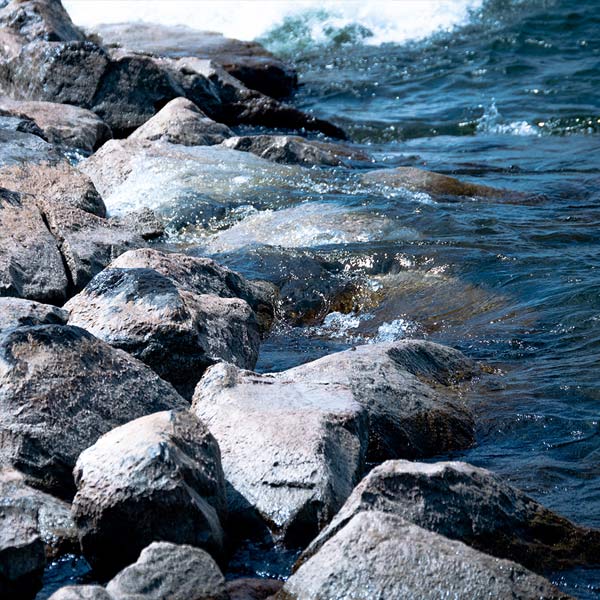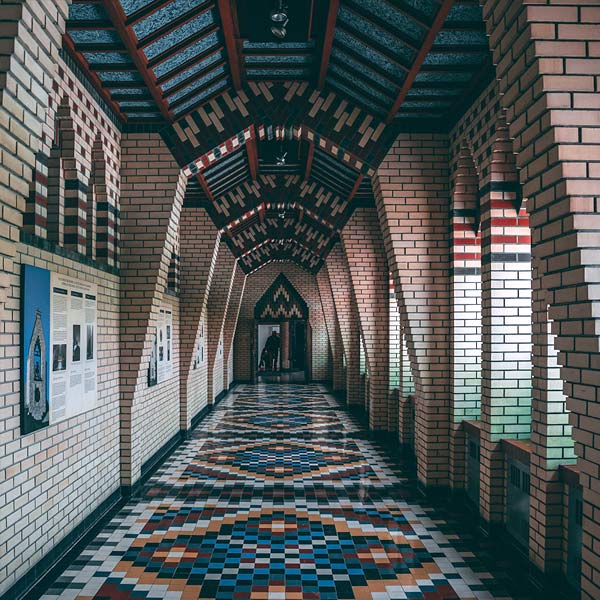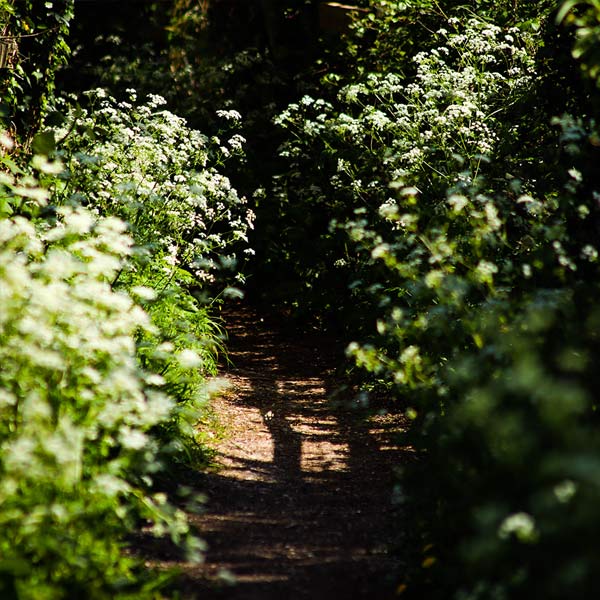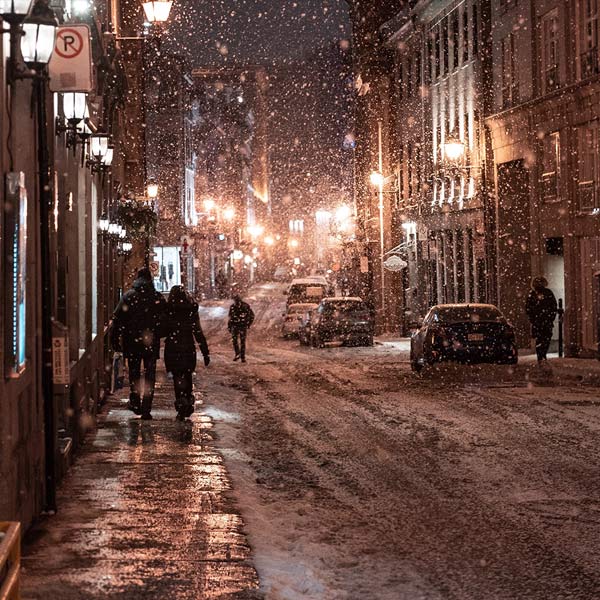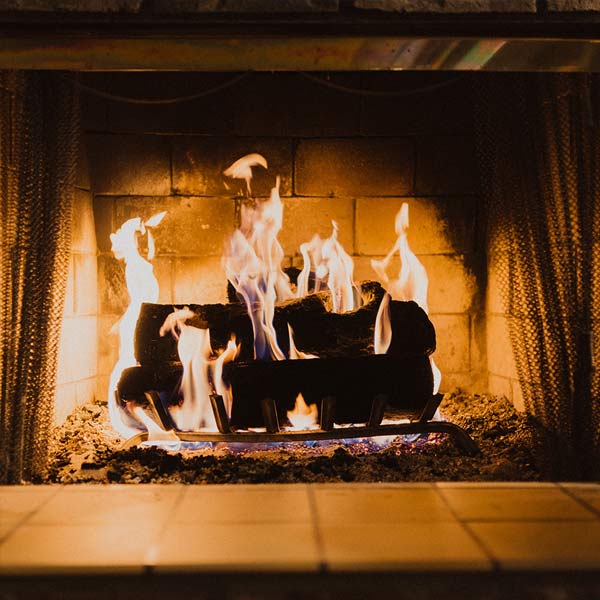wcag heading
“Sold our house in the country. Michael can’t do stairs anymore. Found home right in the village and we’re loving it! Have remembered a story I heard, about a huge gun hidden in the woods. Off to find it.”
AN EXCERPT FROM NATURE OF THE BEAST
“What is it?” Gamache asked quietly as he got closer.
“Can’t you see it?” Monsieur Béliveau whispered. He moved his hand in a circle, but all Gamache could see was a particularly thick section of forest.
“Holy shit,” Gamache heard someone say behind him. He thought it might be Clara, but he didn’t turn around. Instead Armand Gamache stopped. Then stepped back. And back again.
And tilted his head up.
“Merde,” he heard Jean- Guy whisper.
Then he peered at where Monsieur Béliveau was pointing. It was a small tear in the vines. And beyond that it was black.
“Do you have your flashlight?” he asked Jean-Guy, holding out his hand.
“I do, but I’m going first, patron.”
Beauvoir put on gloves, knelt on the ground, turned on the light, and stuck his head through the hole. Jean-Guy looked, though Gamache would never say it to his face, a bit like Winnie- the-Pooh stuck in the honey jar.
But when he came back out there was nothing childish about his expression.
“What is it?” Gamache asked.
“I’m not sure. You need to see.”
This time Beauvoir crawled all the way through the hole and disappeared. Armand followed, first telling everyone else to stay where they were. It did not seem a hard sell. As he squeezed through the opening, Gamache noticed bits of torn camouflage netting.
And then he was through into a world where there was no sun. It was dark and silent. Not even the scampering of rodents. Nothing. Except the beam from Beauvoir’s flashlight.
He felt the younger man’s strong grip on his arm, helping him to his feet. Neither spoke.
Gamache stepped forward and felt a cobweb cling to his face. He brushed it aside and moved another cautious step forward.
“What is this place?” Jean- Guy asked.
“I don’t know.”
Both men whispered, not wishing to disturb whatever else might be in there. But Gamache’s instincts told him there was nothing else. At least, nothing living.
Jean-Guy moved the flashlight around quickly at first trying to assess their situation. Then the rapid, sweeping movements of the circle of light slowed. It fell here and there. And then it stopped and Beauvoir leapt back, pushing into Gamache and dropping the flashlight.
“What is that?” Armand asked.
Jean-Guy stooped quickly to pick up the light. “I don’t know.”
But he did know there was something else in there with them. Beauvoir tilted the beam up. Up. Straight up. And Armand felt his jaw go slack.
“Oh my God,” he whispered.
What he saw was unbelievable. Inconceivable. The camouflage netting and old vines concealed a vast space. It was hollow. But not empty. Inside it was a gun. A massive artillery piece. Ten times, a hundred times bigger than anything Gamache had ever seen. Or heard
of. Or thought possible.
And stretching up from the base, apparently out of the ground, was a figure.
A winged monster. Writhing.
Gamache stepped forward, then stopped as his boot fell on something.
“Jean-Guy,” he said, and motioned to the ground.
Beauvoir pointed the flashlight and there, in the circle of light, was a stick.
